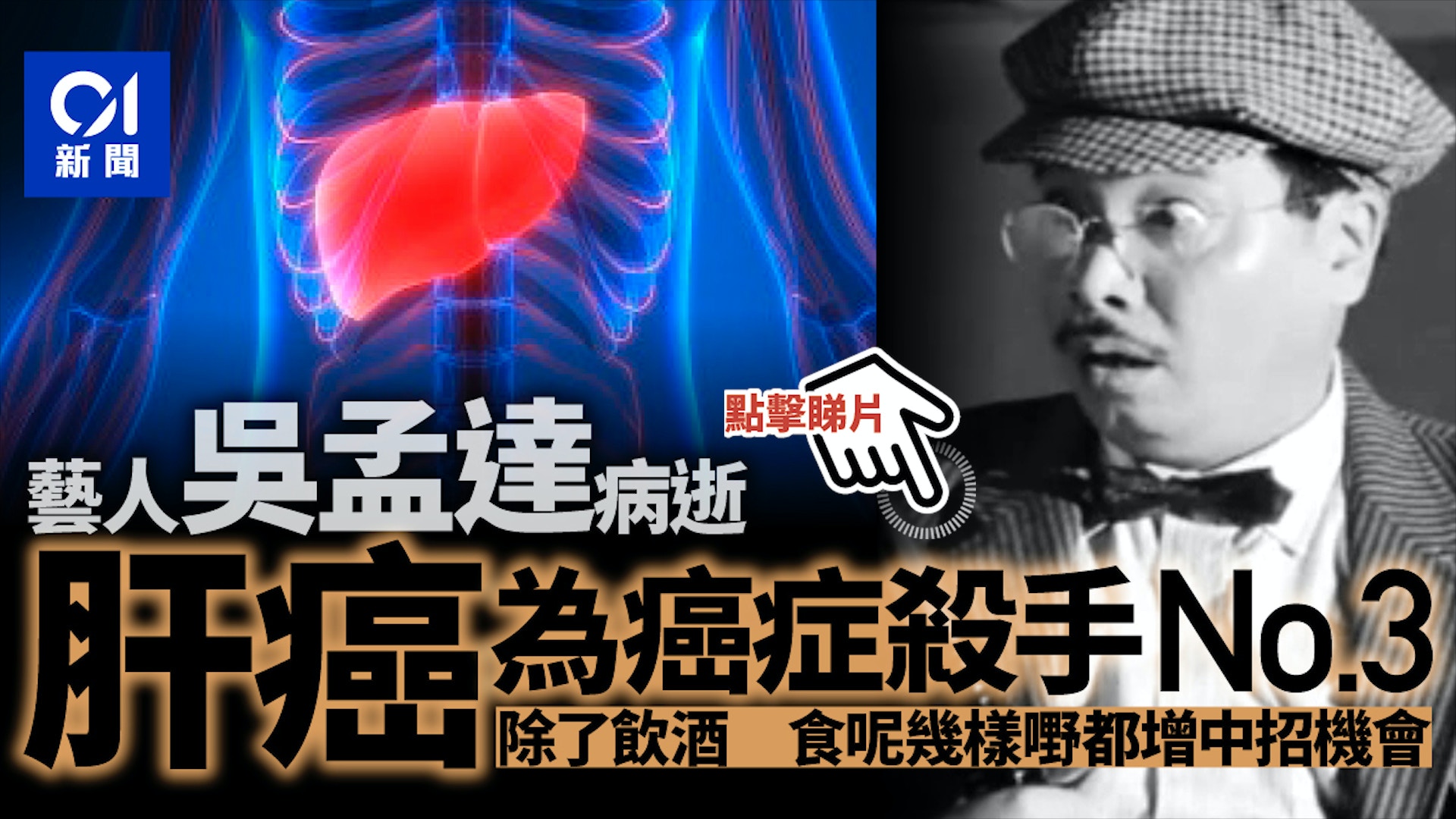Social News
Author: Qiu Jingwen
2021-02-27 17:21
The last update date: 2021-02-27 17:22
Famous entertainer Wu Mengda died of liver cancer at the age of 70.
Liver cancer is one of the ten most common cancers in Hong Kong. On average, more than 1,000 people develop the disease every year, and it also kills 1,000 lives every year. It has become the local third cancer killer for many years.
Entertainer Wu Mengda died of liver cancer at the age of 70.
(Profile picture)
Liver cancer is common in people between the ages of 50 and 70, and the incidence in men is about four times that of women.
According to the statistics of the Hospital Authority, among the 1,742 cases of liver cancer in 2018, there were 1,359 men.
In the same year, 1,089 men and 398 women, a total of 1,487 people died of liver cancer.
The number of deaths is second only to lung cancer (3,853) and colorectal cancer (2,314).
Aflatoxins are toxins produced by fungi that can cause acute and chronic poisoning, including acute liver damage, cirrhosis and tumors.
Peanuts are most commonly found to contain aflatoxin. Other foods include corn, figs, nuts and many types of grains.
(Profile picture)
According to the Hong Kong Cancer Foundation, the main causes of liver cancer include ↓↓
Hepatitis B and C:
Patients with chronic hepatitis B are 100 times more likely to develop liver cancer than the average person.
As for chronic hepatitis C virus, although it is not as common as hepatitis B, the risk of liver cancer in patients is 150 times higher than that of ordinary people;
liver cirrhosis:
long-term damage to the liver, loss of liver repair capacity, fibrous tissue self-repairing and scarring of the liver;
Food mold: Aflatoxins produced by moldy peanuts, grains, corn, soybeans, and dried fruits can cause liver cancer;
various metabolic disorders:
fatty liver, hyperlipidemia, hypertension, high blood sugar, low high-density lipoprotein cholesterol, etc., which are more common in Overweight people;
environmental pollution:
long-term inhalation of harmful chemicals.
+4
+4
+4
The Centre for Food Safety and the Consumer Council reported earlier that some prepackaged yellow turmeric powder was contaminated with aflatoxin.
(Profile picture)
Symptoms↓↓
Early liver cancer generally has no symptoms, but it progresses to mid-to-late stage-
Abdominal swelling, a hard lump in the upper right abdomen, discomfort in the scapula; fluid accumulation in the abdomen, sometimes visible veins on the surface of the abdomen; yellowish eyes and itchy skin; brown urine and light gray stool; insufficient hemagglutinin, easy injury and bleeding; Loss of appetite, weight loss for no reason; nausea and vomiting; fever, fatigue and lethargy.
(Hong Kong Cancer Foundation)
Seek medical attention as soon as possible if you notice any symptoms
Prevent liver cancer↓↓
The Centre for Health Protection advises citizens to reduce alcohol consumption and receive hepatitis B vaccination
Wu Mengda was hospitalized for a long time and lost to liver cancer and died at the age of 70
What is the leading factor in the incidence and mortality of liver cancer in China?
How to prevent it?
Wu Mengda Liver Disease Liver Cancer Hong Kong Cancer Foundation 01 Video I am home












/cloudfront-eu-central-1.images.arcpublishing.com/prisa/GP2ZXWJRROQQUNBAGJPH3WIOVQ.jpg)